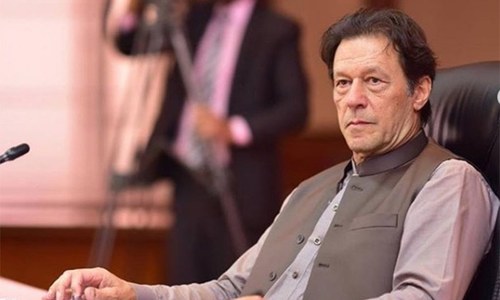ISLAMABAD: While simultaneously working on proposals for expenditure control, the government is ready to hire around one and a half dozen technical experts and consultancy firms from the market at special remuneration packages, starting with the ministries of energy and finance.
The recruitment model for ‘technical advisers’ would subsequently be replicated in 10 other economic and technical ministries in due course, a senior official told Dawn. He said Finance Minister Mohammad Aurangzeb would build an expert team of his own, probably from the banking sector, to look at things from a fresh and doable angle, rather than the traditional bureaucratic set-up.
Likewise, a total of 10 ‘technical advisers’, including a couple of consultants, would be immediately hired at Special Professional Pay Scales (SPPS) in the petroleum division. The prime minister has already approved the revised remuneration structure for four different grades of SPPS, involving an all-inclusive remuneration package of Rs2 million for SPPS-1, up to Rs1.5m for SPPS-II, up to Rs1m for SPPS-III, and up to Rs500,000 per month for SPPS-IV.
Informed sources said the positions of technical advisers, independent of and higher than the federal secretaries, for the economic and other technical ministries were originally proposed to the PTI government by Dr Ishrat Hussain, following the pattern of under secretaries in the United States. It was generally believed in certain quarters that the existing senior bureaucracy was one of the key stumbling blocks to the smooth functioning of the government in terms of foreign investment deliverables.
Amid proposals for austerity measures, over a dozen ‘advisers’ to be placed in various ministries
Dr Ishrat’s proposal was that such technical advisers should be above the secretaries and below the rank of federal ministers. However, this proposal could not reach the implementation phase as powerful secretaries, particularly erstwhile DMGs, dragged their feet. This time around, the reporting line for the technical advisers would remain the federal secretary.
Under the first batch, three technical advisers (technical, financial and legal) are being hired for mineral sector, a technical adviser for LNG business and three advisers (legal, contract management and petroleum economy) for exploration and development and a technical adviser to the petroleum minister. All of them would be hired in SPPS-1 for a term of three years through a headhunting firm, extendable for subsequent two years. In addition, there would be two consultants in SPPS-II for refining and investment and joint ventures’ wing.
The process would be completed within 45-50 days including formal budgetary allocations so that the two teams in ministries of finance and petroleum are up and working with the start of next fiscal year beginning July 1, an official said. Their jobs would remain subject to KPIs.
Some other ministries to follow suit would also include information technology and telecom, power, water resources, climate change, commerce, national food security, industries and production, health services, aviation and maritime affairs.
Officials said the finance and petroleum divisions had been prioritised for fresh inductions mainly because of their critical role in dealing with most of the major upcoming foreign investment plans being pushed by the Special Investment Facilitation Council (SIFC) for expedited result oriented engagements with Saudi Arabia, China, Qatar, the UAE and Turkiye to name a few.
The key stakeholders believed the new layer of experts was needed to address the challenge of less than required number of professionals and lack of needed skill-set and expertise to effectively facilitate the provinces, investors, and other stakeholders. This was resulting in poor outcomes because of missing detailed exploration, bankable feasibility studies, mechanisation and value-addition in mineral, oil and gas sector.
The technical advisers for mineral sector are expected to provide expertise for sustainable resource exploration, planning, due diligence, examination of investment proposals and transaction structures besides development, production, value-addition, utilisation, marketing and exports.
Also, varying set of financial frameworks across the provinces and other entities were posing challenges in attracting investment. The advisers would thus perform financial analysis of potential projects, market trends, and financial regulatory environments and help undertake financial, investment, risk analysis and formulate investment strategies and help prepare robust legal and regulatory frameworks.
Serious weaknesses have also been observed in policy making and implementation strategies in the LNG even though its share was now touching almost 30pc of national gas mix and almost half of SNGPL’s sales volume and legal challenges were emerging not only in local courts but also at international arbitrations.
In certain cases, the government would seeks support of leading business groups like Pakistan Business Council and Pakistan Banking Association for specialised expertise on pro bono basis, the sources said.
Published in Dawn, April 29th, 2024














































Dear visitor, the comments section is undergoing an overhaul and will return soon.